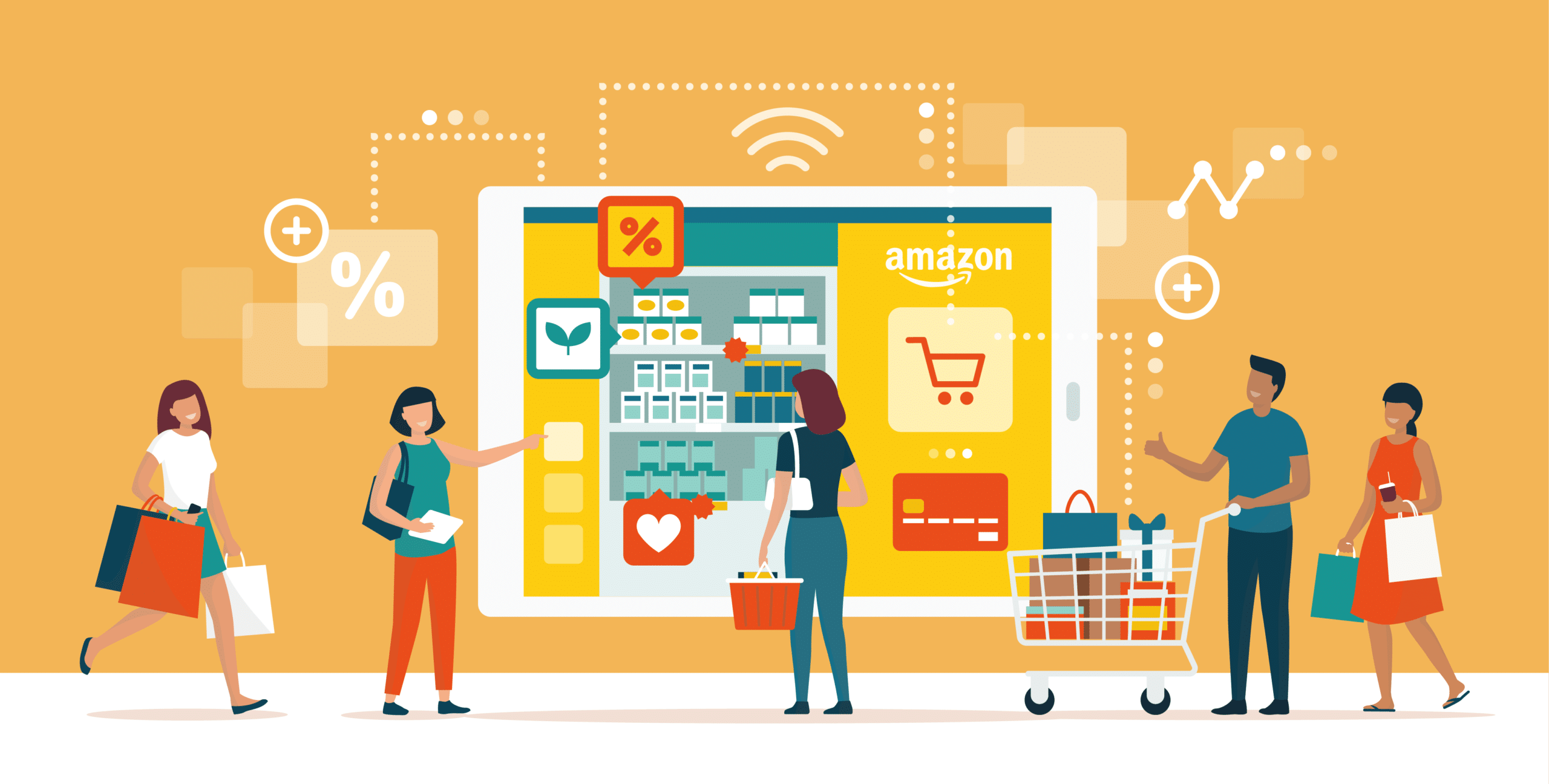
Retailing refers to the marketing of consumer goods and/or services to the final consumer. The consumer buys for themselves and their family. This is a competitive market that can make it difficult to be successful. Here are some tips for retail success. Here are the top elements of retailing. These important elements are worth considering before you venture into retail. We hope you find the right company for you with these tips!
Customer service
There's no better way to keep a loyal customer than by delivering excellent customer service. One customer lost his TV and was unhappy with the representative at the store. He decided to take his TV to another store. It was much cheaper than the one he bought. The manager changed his mind after the customer showed him the store security footage. This is an example of how poor customer service can damage a company's reputation.
The technological advancements that are taking place today will determine the future of customer service within retail. The future of customer service in retail will be shaped by technology. Companies that embrace it will prosper over the next few decades. Some companies decided to establish an online presence after the US pandemic. The internet's rise has made customer service in retail more important than ever. Customers who are unhappy will tell at most two others about the bad experience they had and then complain to their friends.
Listening to your customer is key to providing great customer service. This will allow the retailer to listen to their needs and help them develop a relationship. Customers will be more inclined to return to the store if they feel that their interactions are personal. Customers are more likely to shop again and spend more when they feel valued by the retailer. Good customer service is about listening to customers to make them feel valued and appreciated.
Localization
The location and operation of retail stores are crucial. The best location for your store can make or break your business. Prior to making a decision about where you want your retail store to be located, consider your future goals and the space that your office will require. Then, you should research the local area to determine the amenities that will benefit your business. These are the factors that will guide you in choosing the right place.
The general location for retail is where a shop is located, whether in a mall or in a district. The location of a shop is a key decision. It can have a lasting impact on its image and sales. A retail business's location also affects the cost of operation. Retail location theory is still evolving as more people become educated, and more consumers are aware of how important it is to have a local business.

The demographics of the local population are important factors in deciding the location for your retail store. It is also important to consider the distribution system in the area. You will need to choose a country that has a large supply of this particular demographic if you want to target a specific demographic. If you want to open an international store, ensure that your target demographics are large enough to support the location.
Branding
Today's consumer has a lot of options, so brand loyalty and trust are essential. Retail branding is more important than ever in this market. There are many options for products of similar quality and there are many competitors. To be successful, consumers need to feel a strong emotional connection. The more emotional the connection, a less price sensitive the customer will be. A stronger emotional connection will make it easier for them to connect with the brand online.
Retail branding can also be affected by the physical appearance a brick-and–mortar store. Retailers can create a living brand experience using intentional design choices. Retail branding has evolved beyond just price tier positioning. It is now a strategic approach. Retailers must look beyond the price to achieve this. This includes trusting customers, sustainability sourcing, honesty, value for money, and trustworthiness. To increase customer loyalty, success retailers also work to make their brands more relevant.
The logo is only part of branding retail. Effective retail branding requires understanding consumer behavior and being able identify disruptions. A growing consumer awareness around wellness is one trend. Strong principles are the best way to ensure that your retail brand is able to adapt to digital commerce platforms. The brand will not last if it doesn't have a solid brand foundation. The key to successful retail branding is to create a brand that is a reflection of its values.
Economic impact
Over the past 20 years, the retail industry in general has undergone significant changes. The globalization of retailing triggered a new wave of retail giants that expanded their operations abroad. Several emerging economies also saw the opening of new retail outlets. The modern economy still relies on retail to provide consumers with the products and services they want at a cost they can afford. The industry has its challenges. The following are some ways that retail development can reduce the negative effects of this trend.
Direct Economic Impact: Retail contributes directly to the economy through employment, labor income and GDP. These impacts are different across states. Each state had a greater economic impact than the other in 2012, with retail accounting for more than 12 percent of the GDP. The total impact on GDP, however, ranged from 6.1% in the District of Columbia up to one fifth of Florida's GDP. It is important that you consider the indirect consequences of retail. These measures can have a different impact on supply and demand but all have an impact on the economy.
Retail accounts for nearly one quarter of GDP in OECD countries. The sector is also the leading contributor to job growth in the U.S. since 2010, generating about 15.9 percent of the country's 28 million job increases. As with all sectors, however, retail faces numerous challenges and is susceptible to multiple surprises. Retail firms and the wider economy need additional support in order to stay competitive.
Millennials
Traditional retail is being forced to adapt to the changing needs of millennials by shifting its focus to appeal to them. Instead of being impressed with the latest ads, retailers should adapt their marketing strategies according to the needs and wants of this rapidly changing customer base. To attract this generation, retailers must understand their habits and keep them coming back to the store. This article will explain why the retail industry needs to adapt to the millennial generation and how to appeal to it.

According to NPD Group Millennials spend 81 % in brick-and–mortar stores compared with only 19% online. This group is extremely price-conscious, and they are more likely to use smartphones to search for bargains. Recent research shows that 54 percent of Millennials go to stores at least once a month. Many retailers must rethink how they do business because of their tight budgets.
Multichannel retail is essential for millennials. The first generation of Internet users, millennials are adept at navigating digital platforms. Millennials expect seamless integration of physical and digital channels from retailers. Even if they can't physically view an item, they'll buy it online if the price is right. That means that brands must work on developing new ways to engage with millennials.
Supply chain
A complex system such as the Retail supply chain requires many moving parts, including automation, technology, and inventory distribution model. To meet customer needs, such as fast shipping, the process must be flexible. Today's customers expect their products to arrive quickly and they demand transparency. Consumers expect to pay less for products that are shipped through the supply chain, and want to track their packages from delivery to delivery. Here are some tips for optimizing your retail supply chain.
Measure fulfillment times to ensure efficiency in your supply chain. An efficient supply chain will lower prices and increase sales. Marketplaces offer free or discounted shipping. Many people shop online because they have the option to save money on shipping. Businesses will find it easier to manage their supply chains and be able to deliver their products on time. The more efficient your supply chain is, the more value you will derive. You'll retain customers loyal and satisfied if your fulfillment is faster and more quality.
Forecasting is important in retail, but it's not easy to predict consumer preferences. It is crucial to know what customers want, match it with the supply chain's ability to meet that demand and keep an eye out for potential shortages. How do you do it? There are several tools available to help with forecasting. You can use collaborative planning online to analyse data and gain an understanding of customer demand. This data can be used for product promotion, shipping and selling decisions.
FAQ
Are rewards and insider programs worth the effort?
Although rewards can be great, they are not always worth the effort. Make sure you get value for your money if you decide to sign up for an online program. It's important that you know exactly how much you'll spend on it.
You should not sign up for a rewards program just because you get a bonus. Sometimes these bonuses won't be worth the effort to apply for one.
It is important to ask yourself why you want a reward program before you join. Many times people join just because their friends are doing it. However, if you aren't interested in the products or services offered by the business, you will likely not stick with it long enough for any benefits to accrue.
How can I protect my privacy online?
It is crucial for consumers to understand what information they give out when they use online services like Amazon.com. Customers should ask themselves whether they wish to share their personal information with companies such as Amazon. If you don't wish to share such information, you may need to limit your shopping experience on sites you feel comfortable sharing your private details.
Are there any tricks or tips that will help me save money shopping online?
You should first make a list. After you have made a list, review each item and decide which one to buy at the lowest price. Once you have made a decision, compare prices from different websites. Try to find the lowest possible price for each product.
Statistics
- Beyond that, you'll be liable for a 25% import tax. (makeuseof.com)
- Last Black Friday, I bought a stove from Lowes at 40% off, receiving 24 months of interest-free financing (from Lowe's). (meetfabric.com)
- An approximately 90% increase in price affords Hotel X the opportunity of extreme profits under severe circumstances. (dos.ny.gov)
- A report from the U.S. Census Bureau found that in the first quarter of 2022, an estimated $250 billion was spent on retail e-commerce sales.1 (thebalance.com)
External Links
How To
What are safe shopping techniques online?
Secure online shopping is something that everyone who shops online should know. It is also important to know how to shop on different websites without being scammed.
This article will help you to understand how to shop online for items. This article will give you all the tricks and tips necessary to ensure that you don’t fall for a scam.
-
Do your research. Before you decide to shop online, it's essential to do your homework first. Review the company, read customer feedback and ask friends for their recommendations.
-
Shop around. If you're unsure whether a particular store is reputable, compare prices among several sellers. Also, consider using price comparison apps like Google Shopping and Amazon Price Checker. These tools enable you to determine which retailers have the lowest prices.
-
Pay attention to red flags. When browsing product pages, be aware of any signs indicating a scammer may be trying to trick you. You may find fake sites that use misspelled words and grammar errors. They also often display incomplete products or sell counterfeit its.
-
Beware of popups. Some websites use popups to collect personal data like passwords and credit cards numbers. These pop-ups can be closed by pressing "escape" and choosing another browser window.
-
Ask yourself questions. Consider the following questions when you visit a website: Is it trustworthy? Do they offer the services I require? Can I trust the people behind the site?
-
Don't divulge any personal information. Unless you initiated the transaction or provided financial information, do not give out your Social Security number, bank account numbers, or credit card details by phone or email.
-
Avoid clicking on emails that contain links. It is very easy to click links in emails and end up on a fake website. Only open emails from trusted sources (such as banks) to avoid falling victim to this kind of fraud.
-
Use strong passwords. Strong passwords should contain letters, numbers, symbols. You should keep your password private and not share it with anyone.
-
Downloading files should be done with care. Never open attachments from unknown senders and always download files directly from the source. Never open attachments from unknown recipients. Also, delete attachments that ask for you to install a program as soon as possible.
-
Report suspicious activity. If you suspect your identity was stolen, immediately contact your local police department. You may also file a complaint to the Federal Trade Commission.
-
Protect your device. Make sure you have anti-malware protection installed on your computer. It could protect you from hackers gaining access to your private information.
-
Be aware of scammers targeting seniors. Seniors are especially vulnerable to scams because they are less likely to understand how to spot fraudulent messages and websites.